10 start with P start with P
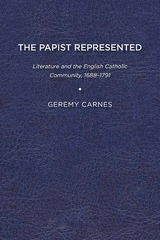
The Papist Represented reincorporates the history of the English Catholic community into the field of eighteenth-century literary studies. It examines the intersections of literary, religious, and cultural history as they pertain to the slow acceptance by both Protestants and Catholics of the latter group’s permanent minority status. By focusing on the Catholic community’s perspectives and activities, it deepens and complicates our understanding of the cultural processes that contributed to the significant progress of the Catholic emancipation movement over the course of the century. At the same time, it reveals that this community’s anxieties and desires (and the anxieties and desires it provoked in Protestants) fuel some of the most popular and experimental literary works of the century, in forms and modes including closet drama, elegy, the novel, and the Gothic. By returning the Catholic community to eighteenth-century literary history, The Papist Represented challenges the assumption that eighteenth-century literature was a fundamentally Protestant enterprise.
Published by University of Delaware Press. Distributed worldwide by Rutgers University Press.

The essays in this pathbreaking collection consider the significance of varied early American fragmentary genres and practices—from diaries and poetry, to almanacs and commonplace books, to sermons and lists, to Indigenous ruins and other material shards and fragments—often overlooked by critics in a scholarly privileging of the “whole.” Contributors from literary studies, book history, and visual culture discuss a host of canonical and non-canonical figures, from Edward Taylor and Washington Irving to Mary Rowlandson and Sarah Kemble Knight, offering insight into the many intellectual, ideological, and material variations of “form” that populated the early American cultural landscape. As these essays reveal, the casting of the fragmentary as aesthetically eccentric or incomplete was a way of reckoning with concerns about the related fragmentation of nation, society, and self. For a contemporary audience, they offer new ways to think about the inevitable gaps and absences in our cultural and historical archive.
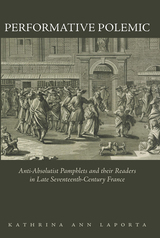
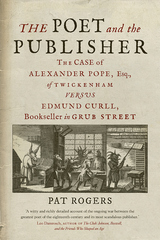
“What sets Rogers’s history apart is his ability to combine fastidious research with lucid, unpretentious prose. History buffs and literary-minded readers alike are in for a punchy, drama-filled treat.”—Publishers Weekly
The quarrel between the poet Alexander Pope and the publisher Edmund Curll has long been a notorious episode in the history of the book, when two remarkable figures with a gift for comedy and an immoderate dislike of each other clashed publicly and without restraint. However, it has never, until now, been chronicled in full. Ripe with the sights and smells of Hanoverian London, The Poet and Publisher details their vitriolic exchanges, drawing on previously unearthed pamphlets, newspaper articles, and advertisements, court and government records, and personal letters. The story of their battles in and out of print includes a poisoning, the pillory, numerous instances of fraud, and a landmark case in the history of copyright. The book is a forensic account of events both momentous and farcical, and it is indecently entertaining.
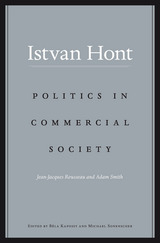
Scholars normally emphasize the contrast between the two great eighteenth-century thinkers Jean-Jacques Rousseau and Adam Smith. Rousseau is seen as a critic of modernity, Smith as an apologist. Istvan Hont, however, finds significant commonalities in their work, arguing that both were theorists of commercial society and from surprisingly similar perspectives.
In making his case, Hont begins with the concept of commercial society and explains why that concept has much in common with what the German philosopher Immanuel Kant called unsocial sociability. This is why many earlier scholars used to refer to an Adam Smith Problem and, in a somewhat different way, to a Jean-Jacques Rousseau Problem. The two problems—and the questions about the relationship between individualism and altruism that they raised—were, in fact, more similar than has usually been thought because both arose from the more fundamental problems generated by thinking about morality and politics in a commercial society. Commerce entails reciprocity, but a commercial society also entails involuntary social interdependence, relentless economic competition, and intermittent interstate rivalry. This was the world to which Rousseau and Smith belonged, and Politics in Commercial Society is an account of how they thought about it.
Building his argument on the similarity between Smith’s and Rousseau’s theoretical concerns, Hont shows the relevance of commercial society to modern politics—the politics of the nation-state, global commerce, international competition, social inequality, and democratic accountability.

The Battle of Poltava has long been recognized as a crucial event in the geopolitical history of Europe and a decisive point in the Great Northern War between Sweden and the Russian Empire. The Russian victory at Poltava contributed to the decline of Sweden as a Great Power and was a major setback to Ukrainian independence. Hetman Ivan Mazepa, who joined forces with the Swedish king Charles XII against Tsar Peter I, remains a controversial figure even today.
In 2009, the Harvard Ukrainian Research Institute gathered scholars from around the globe and from many fields of study—history, military affairs, philology, linguistics, literature, art history, music—to mark the 300th anniversary of the battle. This book is a collection of their papers on such topics as the international, Russian, and Ukrainian contexts of the battle; Mazepa in European culture; the language and literature of the period; art and architecture; history and memory; and fact, fiction, and the literary imagination. Mazepa himself is the focus of many of the articles—a hero to Ukrainians but a treacherous figure to Russians. This book provides a fresh look at this watershed event and sheds new light on the legacies of the battle’s major players.

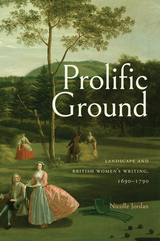
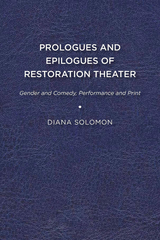
Published by University of Delaware Press. Distributed worldwide by Rutgers University Press.

In 1753, at the request of the London Jewish community, the Peiham administration passed an act repealing the religious test that prevented Jewish aliens from being naturalized. This act, formally known as the Jewish Naturalization Act, was of negligible practical importance, but political opponents exploited the issue for an upcoming election campaign. The "Jew Bill" became a battle cry that swept across England. The Peiham administration, sensing the political damage that could be caused by the bill, bowed to the clamor and then took the initiative in defeating its own act.
This book is the first thorough account of that notorious but little-understood episode in English history. Using a largely narrative form the author first discusses the position of the Jews in the mid-eighteenth century and explains why they sought and obtained passage of the bill. He then recounts the beginnings of opposition to it and discusses the religious, economic, political, and psychological reasons for the opposition. He describes in detail the propaganda campaign against the bill and the resultant effect on the election.
The author concludes that this was not an isolated explosion of anti-Semitism, but rather a renewal of a long-standing debate over general naturalization policy. He further concludes that Parliament was more sensitive to public opinion than is generally supposed and that the terms "Whig supremacy" or "trusteeship" are not entirely accurate.
The reader will find that this study reveals much of the English political system of that era: the style and structure of parliamentary politics and electioneering; religious attitudes and economic notions; and the methods and ethical and intellectual standards of journalism and political propaganda.
READERS
Browse our collection.
PUBLISHERS
See BiblioVault's publisher services.
STUDENT SERVICES
Files for college accessibility offices.
UChicago Accessibility Resources
home | accessibility | search | about | contact us
BiblioVault ® 2001 - 2024
The University of Chicago Press









